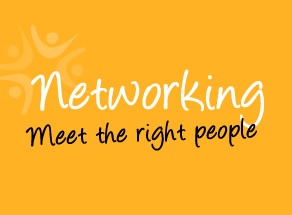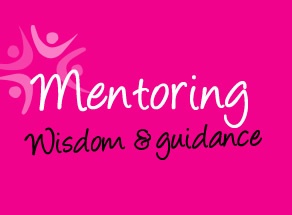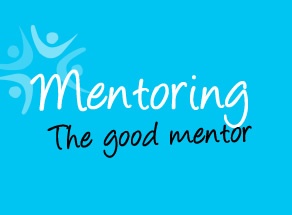
5 Common Career Regrets To Avoid
03/04/2015 03:14AM | 8168 viewsPeople too often say “what if” throughout their careers. They think about what could have been if they had just associated themselves with the right people, made better choices, or taken more calculated risks. Career management is a full time responsibility and if not done rightly, it will lead toward regrets that could have been avoided.
Early in my career, one of my mentors told me, “As long as you are always exploring and progressing forward you will eventually discover your passionate pursuits and the career path you are looking for and will eventually thrive in.”
His point was that if you are preparing yourself for the next unexpected opportunity; if you are developing your skills for the next challenge; if you are listening to your colleagues to better serve them; if you are cognizant of workplace politics and their ramifications – just to name a few – your career will be momentous. Unfortunately, it’s easy to lose focus in your efforts to stay ahead of the game – especially when dealt with unexpected crisis and change along the way. Being able to anticipate the unexpected is what allows you leap ahead rather than disrupt your career goals.
The difference between creating career momentum versus constantly encountering disruption has to do with many factors. Among them are the decisions you make (or don’t), the opportunities you see and seize (or don’t), the potential you unleash and leverage (or don’t), the courage you have to do what other’s don’t (or won’t), and how you handle the adverse circumstances that may impact your reputation. Every day your career path is being redefined. It’s your responsibility to act strategically and confidently to assure you are always progressing forward and doing all that you can to avoid having any regrets down the road.
No matter what stage of your career you are in, it’s not too late to avoid these five common career regrets:
1. Didn’t Take Enough Risks
Most people will question whether they are taking enough risks when they observe their colleagues challenging the status quo at work. They start to realize they have been playing it too safe, and haven’t been courageous enough to see risk as their best friend. Many people rely too much upon the ideas and ideals of others to enable their success, and as a consequence grow complacent.
How are you ever going to discover your own potential if you aren’t enabling your entrepreneurial spirit?
In today’s workplace of constant change, you must trust yourself enough to act upon your own instincts rather than follow those of others. I am certainly not suggesting that you shouldn’t be a team player, but simply recommending that you stand out from the crowd by putting your ideas to the test. You never have to fear failure when you are learning from your setbacks.
Those with successful careers took calculated risks, and as they built their confidence, they stretched themselves even further to fully leverage their innate capabilities. Don’t be afraid to fail and experience adversity. You will never define your career trajectory and build momentum if you are waiting for others to take the calculated risks for you.
2. Didn’t Create Distinction
When you don’t take enough risks, this usually means that you are not acting upon the opportunities that are right in front of you – especially those that others don’t see. This makes it difficult to create distinction and thus harder to establish a competitive advantage for yourself.
Distinction helps you get discovered; it gives you the leverage to solidify a platform that others want to be associated with. When people don’t create real distinction for themselves, they find satisfaction in artificially creating distinction by self-proclaiming their perceived value and capabilities amongst people with no influence – those whom I call the loafers and the leaches.
People without distinction find themselves stuck in their careers – unable to grow and develop personally and professionally.
You can’t create distinction by trying to be like everyone else. Think differently, be your most authentic self and allow yourself to be vulnerable. Listen to, learn from and observe others – but find your own niche so that you can begin to live what you really stand for and gain from that a unique competitive edge.
3. Didn’t Define/Manage Your Personal Brand
When you don’t create distinction, you’re missing a crucial step in defining and living your personal brand. Those without distinction will make up for it by focusing their efforts on delivering a heavy dose of self-promotion – rather than attempting to advance themselves by serving others.
Personal branding is a requirement for career success, but when viewed as a self-promotion campaign the probability for sustainable success wanes. Unfortunately, personal branding has become a “commoditized” term that has lost its meaning as more and more people misuse social media as a substitute for building a personal brand in a desperate attempt to increase their relevancy.
Your personal brand should represent the value that you consistently deliver to those whom you are serving. This doesn’t require any self-promotion. But managing your personal brand does require you to be a great role model, even a mentor that others can depend on. This is what helps you elevate your relevancy and advance your career.
Being diligent about always refreshing your professional network is one example of how well you are managing your personal brand. Are you making your professional network and your personal brand stronger by associating with people that pull you out of your comfort zone, and open your eyes to see opportunity with greater clarity and focus? Or do you lose momentum for your personal brand by getting too comfortable with those that no longer challenge your ideas or ideals?
4. Didn’t Push Yourself Enough
When you don’t define/manage your personal brand, you aren’t pushing yourself enough to get better and improve. When you stop learning, you stop growing. When you stop growing, you lose strategic focus. When you lose focus, you lose momentum. When momentum is lost, you fall into the trap of complacency – and begin to take the path of least resistance.
Winners focus, losers spray because they don’t value their own self-worth. When you don’t push yourself to aim higher, you lose the right to have greater impact and influence. If you don’t value yourself enough, your stock declines as others start to devalue you, too.
I often tell people to give it everything they’ve got for just one year and they’ll experience positive results like they never have before. Initially, most people are motivated – until they experience some kind of adversity and the game gets tougher to play. Unable to shake off failure, they become disillusioned, rather than inspired to dig-deeper and find ways to improve themselves and their performance. Unfortunately, many people don’t have the fight to take things all the way through to the end.
This type of person quits in the middle of the journey rather than putting their best foot forward and discovering something greater that lies within them. These are the people that remain stuck in their careers – advancing via small incremental steps (if at all) at underperforming organization’s that don’t expect much from them. Under these conditions, they may be perceived as a high-performer – but they are not developing any real skill-sets that would be transferable to a higher performing organization.
5. Didn’t Prepare Strategically
Those who don’t push themselves enough are not strategically preparing themselves to achieve their career goals and objectives. Preparation is the foundation for success. Preparation is the key to evolution and the enabler to avoid substitution in its stead. When people fail or get caught in a cycle of regret, it’s highly attributable to their lack of preparation. When an opportunity is missed, it’s often because you didn’t prepare yourself well enough to be able to see and seize it. Preparation demands accountability; as such, it is an individual’s responsibility to strategically plan for their future and to stick to their plan all the way through to fruition.
Preparing strategically begins with the understanding that you never really achieve any level of success alone. When you don’t value the power of mentorship and fail to align yourself with those that can guide you rightly through their shared wisdom – you will eventually discover gaps in your know-how and self-awareness. Your decision-making capabilities and instincts begin to weaken. Find a mentor and make it matter!
When you don’t prepare strategically, you begin to trust the wrong people. Trust yourself enough to associate with people that can help you find the right organizational fit, culture and leadership to develop your skills and competencies. Those who have the right influence and value your capabilities will eventually lead to your talent being discovered as you fulfill an organizational need and advance your career.
Remember this: The wise man forfeits his fortune when he does not trust himself. The underlying theme behind most career regrets was the failure to act, to not be afraid and to trust yourself enough to manage change and enable constructive disruption. You will avoid the pain of regret when you can answer the following questions in a positive way: Have you made risk your best friend and complacency your enemy? Have you created distinction and a strong personal brand for yourself? Are you associating with the right types of people and refreshing your network often? And finally, have you prepared and strategically planned for the long and prosperous career that you want?






Post your Comment
Please login or sign up to comment
Comments